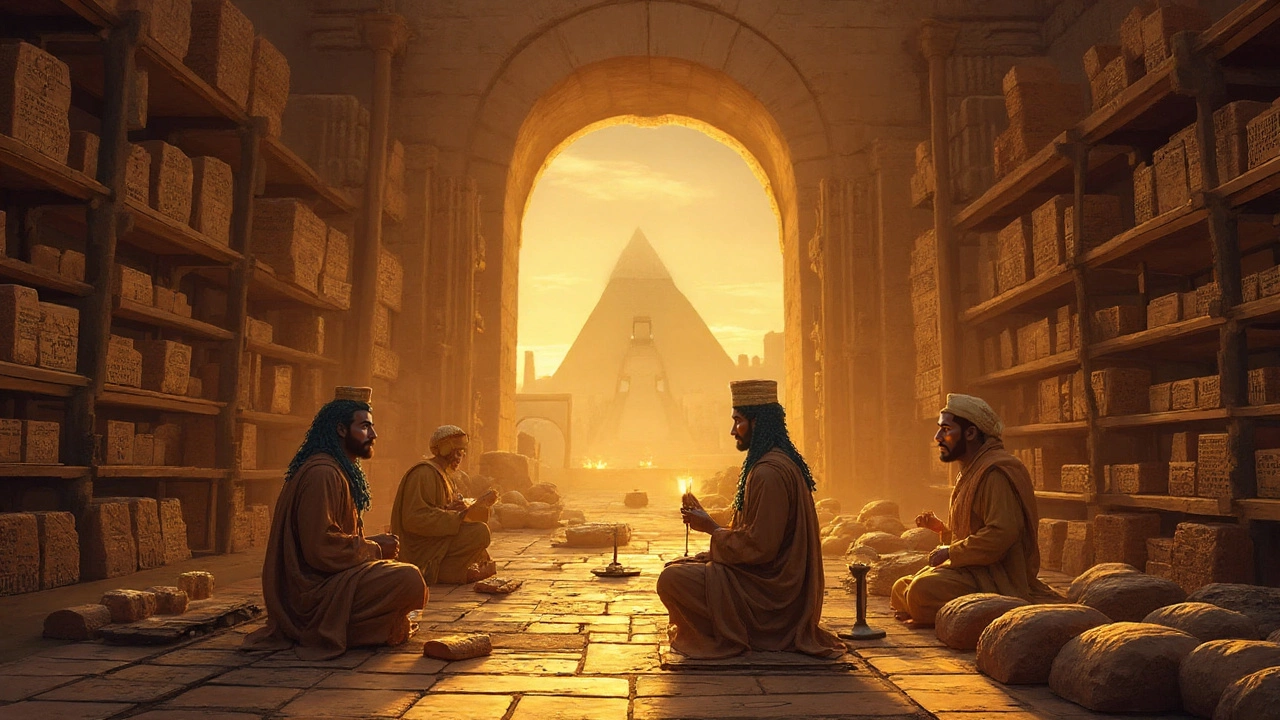
World’s Oldest Poem: Unearthing the Epic of Gilgamesh and Ancient Poetry
Dive into the fascinating story behind the oldest known poem, the Epic of Gilgamesh. Discover how ancient poetry shaped storytelling as we know it.
If you’ve ever wondered what the world’s oldest known story is about, you’ve landed in the right spot. The Epic of Gilgamesh comes from ancient Mesopotamia, a region that’s now modern Iraq. It’s written on clay tablets in cuneiform script, and even after 4,000 years people still read and talk about it.
The epic follows Gilgamesh, a king of the city‑state Uruk. He’s part god, part human, and he’s a bit of a bully at the start. The gods hear the complaints, and they send a wild man named Enkidu to challenge him. What starts as a fight quickly turns into a deep friendship that changes both of them.
After Gilgamesh and Enkidu become buddies, they go on two big adventures. First, they travel to the Cedar Forest to take down the fearsome monster Humbaba. That mission shows Gilgamesh’s bravery, but also his reckless side.
Next, they defeat the Bull of Heaven, which the goddess Ishtar sends after Gilgamesh when he rejects her advances. The victory brings fame, but it also angers the gods, and they punish Enkidu with a sudden, painful death.
Enkidu’s death hits Gilgamesh hard. He’s suddenly faced with his own mortality and goes on a quest for immortality. He meets Utnapishtim, a sage who survived a great flood that wiped out humanity. Utnapishtim tells Gilgamesh the flood story—an early version of the tale you might know from the Bible.
Utnapishtim offers Gilgamesh a chance to become immortal by staying awake for six days, but Gilgamesh fails. He returns to Uruk, learns that true legacy comes from the good deeds you leave behind, not from never dying.
The Epic of Gilgamesh isn’t just an old myth; it’s a mirror for modern life. It asks the same questions we all face: What makes a good leader? How do friendship and loss shape us? And what do we do when we realize we can’t cheat death?
Its themes of friendship, the fear of death, and the search for meaning are universal. That’s why you’ll see references to Gilgamesh in movies, books, and video games. Even teachers use it to explain early writing systems, because the tablets show how humans first recorded stories.
For travelers, the ruins of ancient Uruk give a tangible feel for the world Gilgamesh once ruled. Visiting museums with clay tablets lets you see the actual marks that survived millennia.
In short, the Epic of Gilgamesh packs adventure, philosophy, and history into one package. Whether you’re a student, a fan of myths, or just curious about humanity’s oldest stories, it offers something practical: a reminder that the things we value—friendship, bravery, and leaving a positive mark—still count today.

Dive into the fascinating story behind the oldest known poem, the Epic of Gilgamesh. Discover how ancient poetry shaped storytelling as we know it.